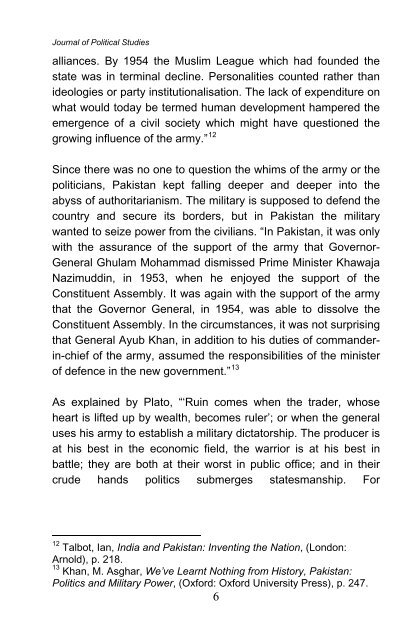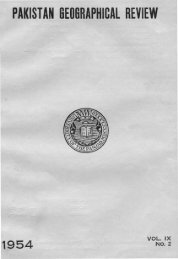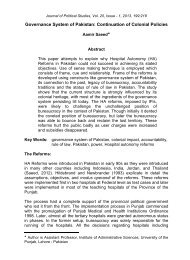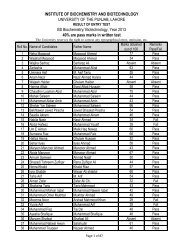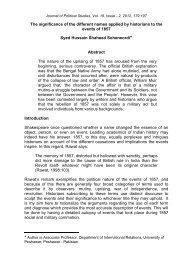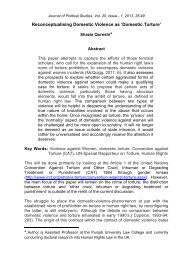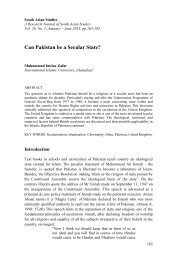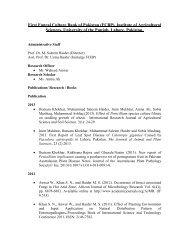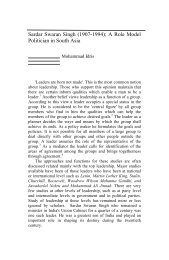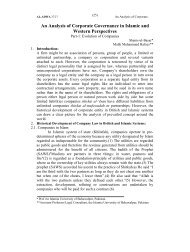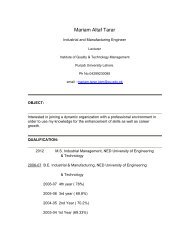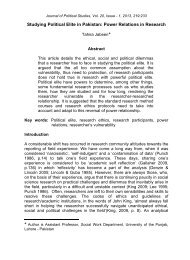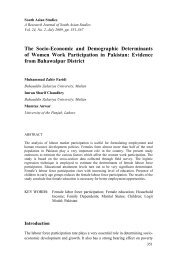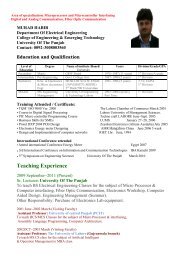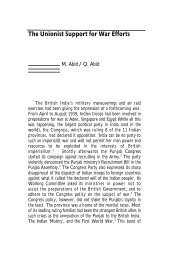Roots of authoritarianism in Pakistan-KU.pdf
Roots of authoritarianism in Pakistan-KU.pdf
Roots of authoritarianism in Pakistan-KU.pdf
Create successful ePaper yourself
Turn your PDF publications into a flip-book with our unique Google optimized e-Paper software.
Journal <strong>of</strong> Political Studies<br />
alliances. By 1954 the Muslim League which had founded the<br />
state was <strong>in</strong> term<strong>in</strong>al decl<strong>in</strong>e. Personalities counted rather than<br />
ideologies or party <strong>in</strong>stitutionalisation. The lack <strong>of</strong> expenditure on<br />
what would today be termed human development hampered the<br />
emergence <strong>of</strong> a civil society which might have questioned the<br />
grow<strong>in</strong>g <strong>in</strong>fluence <strong>of</strong> the army.” 12<br />
S<strong>in</strong>ce there was no one to question the whims <strong>of</strong> the army or the<br />
politicians, <strong>Pakistan</strong> kept fall<strong>in</strong>g deeper and deeper <strong>in</strong>to the<br />
abyss <strong>of</strong> <strong>authoritarianism</strong>. The military is supposed to defend the<br />
country and secure its borders, but <strong>in</strong> <strong>Pakistan</strong> the military<br />
wanted to seize power from the civilians. “In <strong>Pakistan</strong>, it was only<br />
with the assurance <strong>of</strong> the support <strong>of</strong> the army that Governor-<br />
General Ghulam Mohammad dismissed Prime M<strong>in</strong>ister Khawaja<br />
Nazimudd<strong>in</strong>, <strong>in</strong> 1953, when he enjoyed the support <strong>of</strong> the<br />
Constituent Assembly. It was aga<strong>in</strong> with the support <strong>of</strong> the army<br />
that the Governor General, <strong>in</strong> 1954, was able to dissolve the<br />
Constituent Assembly. In the circumstances, it was not surpris<strong>in</strong>g<br />
that General Ayub Khan, <strong>in</strong> addition to his duties <strong>of</strong> commander<strong>in</strong>-chief<br />
<strong>of</strong> the army, assumed the responsibilities <strong>of</strong> the m<strong>in</strong>ister<br />
<strong>of</strong> defence <strong>in</strong> the new government.” 13<br />
As expla<strong>in</strong>ed by Plato, “‘Ru<strong>in</strong> comes when the trader, whose<br />
heart is lifted up by wealth, becomes ruler’; or when the general<br />
uses his army to establish a military dictatorship. The producer is<br />
at his best <strong>in</strong> the economic field, the warrior is at his best <strong>in</strong><br />
battle; they are both at their worst <strong>in</strong> public <strong>of</strong>fice; and <strong>in</strong> their<br />
crude hands politics submerges statesmanship. For<br />
12 Talbot, Ian, India and <strong>Pakistan</strong>: Invent<strong>in</strong>g the Nation, (London:<br />
Arnold), p. 218.<br />
13 Khan, M. Asghar, We’ve Learnt Noth<strong>in</strong>g from History, <strong>Pakistan</strong>:<br />
Politics and Military Power, (Oxford: Oxford University Press), p. 247.<br />
6


